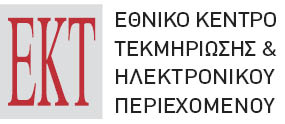The Ph.D thesis attempts to explore Andrew Feenberg’s critical theory of technology aiming on the one hand at critically reconstructing his arguments by presenting their philosophical foundations and on the other hand at repositioning his theory in the context of modern digital technologies, while simultaneously preserving its political vision. In order to achieve this last goal it combines Feenbergs approach to technology with the political tradition of the digital commons. The research begins with a broader presentation of Feenberg’scritical theory of technology by emphasizing on his opposition both to the neutrality of technology and to arguments posed by essentialists. In the first part of the research, the philosophical foundations of Feenberg’s thought are presented, namely Marx, Weber, Lukács, Adorno, Horkheimer, Marcuse, Heidegger, Habermas, Honneth, Foucault, Latour, and Simondon. Through the analysis of the impact of those philosophers to Feenberg’s thought the most important notions of his approach are being sketched. In the second part, the research turns to the philosophy of the Digital and especially of the Internet, presenting not only some approaches to this medium, but moreover Feenberg’s critical theory of the Internet. In this part of the dissertation a significant question regarding the Internet is being answered: Why should one study the Internet today? In the third and fourth parts the convergence between Feenberg’s approach to technology and digital commons tradition takes place. The third part attempts to rigorously present what the commons tradition offers to political theory, while the fourth part combines features of the digital commons with notions drawn from Feenberg’s philosophy. It is argued that both digital commons tradition and Andrew Feenberg’s thought benefit from such a convergence, since the former acquires strong philosophical and critical technological foundations, while the latter obtains practical examples of how new technical artifacts alter the ways people communicate and build communities. The research concludes by emphasizing on the political dimensions of the technological reappropriation of the digital commons on the basis set by Andrew Feenberg’s critical theory of technology
Η παρούσα διατριβή επιχειρεί να ερευνήσει την κριτική θεωρία της τεχνολογίας του Andrew Feenberg στοχεύοντας στην εξερεύνηση των θεωρητικών εργαλείων της και την αναδιαμόρφωση τους, προκειμένου να εξεταστεί η σημερινή κοινωνία της εποχής των ψηφιακών τεχνολογιών. Η διατριβή εκκινεί από μία γενική παρουσίαση της προσέγγισης του Feenberg σχετικά με την τεχνολογία δίνοντας έμφαση στην εναντίωσή του στην ουδετερότητα της τεχνολογίας κατά τη σύνδεσή της με την κοινωνία. Κατά τη σκιαγράφηση της θεώρησης του Feenberg επιχειρείται η ανάδειξη των φιλοσοφικών καταβολών της θεωρίας, καθώς και η σχέση της με άλλα φιλοσοφικά ρεύματα, στα οποία αναφέρεται και από τα οποία αντλεί ο Αμερικανός φιλόσοφος. Επιπλέον στο πρώτο μέρος δίνεται ιδιαίτερη έμφαση σε όρους και έννοιες της θεωρίας του Feenberg που θα αποτελέσουν τα κλειδιά για τα επόμενα δύο μέρη της διατριβής, όπως την «τεχνολογική προκατάληψη» («technological bias»), «το τεχνολογικό ασυνείδητο» («technological unconscious») κ.α. Στη συνέχεια η διατριβή επικεντρώνεται στην κριτική επεξεργασία των θέσεων του Feenberg σχετικά με το διαδίκτυο και τις ψηφιακές τεχνολογίες. Στο δεύτερο αυτό μέρος καταβάλλεται προσπάθεια να αναδειχθεί η προσέγγιση της κριτικής θεωρίας της τεχνολογίας ως προς τα σύγχρονα ψηφιακά μέσα, όπως τα ψηφιακά παιχνίδια και ο κυβερνοχώρος. Τέλος, στο τρίτο μέρος τη διατριβής τίθενται οι έννοιες και οι στόχοι του Feenberg στην πράξη καθώς εφαρμόζονται στις σύγχρονες ψηφιακές τεχνολογίες, κυρίως στα νέα ψηφιακά παιχνίδια και σε πλατφόρμες κοινωνικής δικτύωσης, προκειμένου να εκτιμηθεί κατά πόσο οι αρχικές επιδιώξεις της κριτικής θεωρίας της τεχνολογίας, όπως ο εκδημοκρατισμός της τεχνολογίας, μπορούν να ισχύουν σήμερα. Ερευνώνται, έτσι, σύγχρονες αναλύσεις για το διαδίκτυο και τις ποικίλες πολιτισμικές του συνιστώσες, ώστε από κοινού με τις έννοιες-κλειδιά του Feenberg να επιχειρηθεί η κριτική επεξεργασία των ευρύτερων πολιτικών και κοινωνικών μετασχηματισμών που επιχειρούν οι σύγχρονες ψηφιακές τεχνολογίες.
 Εθνικό Κέντρο Τεκμηρίωσης και Ηλεκτρονικού Περιεχομένου (ΕΚΤ)
Εθνικό Κέντρο Τεκμηρίωσης και Ηλεκτρονικού Περιεχομένου (ΕΚΤ)

